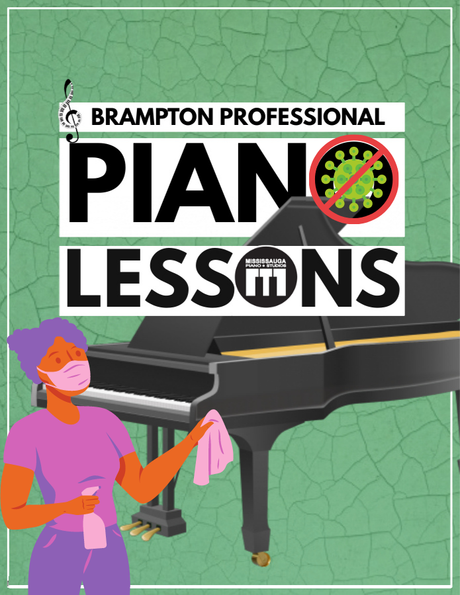COVID-19 has been a tough time for everyone. If you are a music fan, the rhythms and melodies must have really helped you to get through. As you play your instruments, you need to be extra careful because of the virus. While getting piano lessons Brampton has now moved online, your keyboard is still susceptible to the virus and germs.
Piano is an instrument that requires the most use of fingers. However, you touch so many things during the day that the instrument requires some disinfectant care. Even the best music school, Brampton, recommends that you clean the piano regularly so as to ensure that no virus stays intact on the keys.
This article will highlight some of the ways that piano instructor Brampton suggests to take care of the piano and keep it in a clean condition. We hope to address the right way to disinfect the piano and how you can properly clean it for further usage.
How to take care of your piano in COVID-19
Even though you sanitize your hands regularly and clean them with soap, there’s always the risk of carrying bacteria or viral pathogens. But what about the coughing and sneezing that happens during a lesson? You can find a piano teacher for lessons, but only you can take care of the piano when no one is watching.

First of all, you need to know that COVID-19 stays longer on plastic than on wood. If your piano has plastic keys, you need to take precautions and be extra careful. Studies show that the virus is detectable for upto 3 days on plastic surfaces. When you take your piano lessons, Brampton, you may have to clean the piano hours before you start with the instructions to play.
Even if you have keys made of ivory or wood, the piano instructor, Brampton recommends that you clean it and do not overlook the disinfection process. While wood is less susceptible, it is more prone to damages while cleaning. The wrong disinfectant liquid can cause long-term damage that might harm the piano. You should always consider the best music school in Brampton and ask for recommendations to clean the piano. Ivory can absorb too much water as it is porous, so you need to be careful while ensuring that all the virus and bacteria are eliminated. These keys are infected for less amount of time as compared to the plastic keys. But regular maintenance is essential for both.
Disinfecting your piano
The process of disinfecting the piano is quite simple. However, there are certain things you need to be informed about. You need to have the right disinfectant liquid based on the build-quality of your piano. Here’s how you can disinfect the piano –
Use some warm water, disposable towel, and liquid soap to clean the piano. You can take a mild amount of soap and mix it with water. Gently clean the keys, case parts, and finish, with the disinfectant mix. This is usually enough to eliminate all the viruses and bacterias from the keyboard.
In today’s world, you can often find a piano teacher disinfecting their piano with alcohol-based surface disinfectants. Using the sanitizes and surface cleaners with alcohol is tricky. Older instruments with ivory or wood keys can be skipped as the liquid may damage the components. Always spray the disinfectant first on a hand-towel and then use it to clean the keys and parts. Never spray the disinfectant directly on the keys as it might venture inside and damage the internal components. Don’t scrub the keys harshly – be gentle and wipe with the disinfectant towel. Follow these steps and repeat them regularly to ensure your piano is free from any virus or bacteria.

